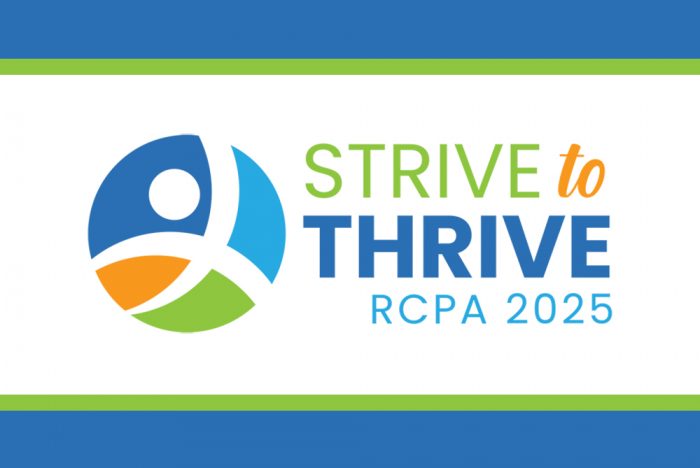- Over sixty workshops that tackle the latest in technology, workplace culture, and health care initiatives;
- National keynote and plenary speakers who will discuss issues ranging from the federal landscape to personal well-being;
- Networking opportunities in Connections Hall, featuring over 90 exhibitors with the latest industry products and services (as well as some exciting game prizes!); and
- Opportunities to connect with RCPA staff and other industry leaders to discuss all that is happening in health and human services.
Registration Now Open for National Council Hill Day; RCPA to Lead Pennsylvania Delegation
We are excited to announce Hill Day 2025!
Hill Day will span two days, with a Public Policy Institute Program on October 7 at the Omni Shoreham Hotel, and meetings on Capitol Hill slated for October 8.
This is a unique opportunity to connect with colleagues from across the country and share your important stories directly with the people who represent you in Washington, D.C.
Last year, RCPA members received the opportunity to learn and develop their lobbying skills through the Public Policy Institute sessions and put them to work meeting with Pennsylvania legislators in a series of meetings and roundtables. The experience was invaluable and created a pathway to advocating in their home districts and events like the RCPA Capital Day.
While Hill visits are open to all, space will limit the Public Policy Institute to 400 registrants.
As RCPA will once more serve as Team Captains for the Pennsylvania delegation, we ask that, when you register, you also contact RCPA COO Jim Sharp. RCPA will be coordinating and communicating with members as the event proceeds.
Register Here
Attendees are responsible for their own travel and lodging; however, hotel rooms can be booked through the Omni Shoreham Hotel at a discounted group rate once you have registered. Group transportation between the hotel and Capitol Hill will be offered at set times.
Note on potential shutdown: If Congress does not reach a spending agreement by September 30, there may be a government shutdown starting October 1. D.C. offices will remain open, however, and staff meetings can still occur. More updates will be provided if a shutdown appears likely.
More details will be forthcoming. We look forward to seeing you there!
Questions:
- Hill Day 2025 Website
- Public Policy Institute, Hill Meetings, or Legislative Asks: Email
- Logistics or Other Inquiries: Email
FDA Recalls Certain Dexcom Glucose Monitor Receivers
PBC Information Sessions and VOHs for SCOs Announced
Performance-Based Contracting (PBC) Information Session for Supports Coordination Organizations (SCOs)
This webinar series will provide details on specific performance standards for Performance-Based Contracting (PBC) for Supports Coordination Organizations (SCO). Each session will cover the required reporting, data source, data collection, and guidance for each performance standard. These sessions will each be unique in content and build upon one another. SCO staff are encouraged to attend all four sessions. All sessions will be recorded and made available on MyODP’s website.
Registration
Select the sessions below you wish to register for. You will have to register for each session individually. SCOs are encouraged to attend all sessions.
Note: Registration information for session one was released earlier this week. If you previously registered for this session, you do not need to reregister.
- Session One
Wednesday, August 13
10:00 am – 11:30 am - Session Two
Monday, August 25
2:00 pm – 3:30 pm - Session Three
Friday, September 5
1:00 pm – 2:30 pm - Session Four (Billing and Payment)
Monday, September 8
2:30 pm – 4:00 pm - Session Five (Performance Analysis Services)
Monday, September 15
1:00 pm – 2:00 pm
Virtual Office Hours
Virtual Office Hours (VOH) for SCOs to speak with the Office of Developmental Programs (ODP) leadership about PBC. Questions and concerns related to the summit materials and rollout will be addressed.
- VOH Session One
Thursday, September 18
3:00 pm – 4:30 pm - VOH Session Two
Wednesday, October 1
12:30 pm – 2:00 pm - VOH Session Three
Wednesday, October 8
11:00 am – 12:30 pm - VOH Session Four
Thursday, October 16
11:00 am – 12:30 pm
Youth Athletes, Not Just Professionals, May Face Mental Health Risks From Repeated Traumatic Brain Injuries
DHS Enters Settlement Ensuring MH Policy and Services for Children Adjudicated Dependent
The Pennsylvania Department of Human Services (PA DHS) has entered into a Settlement Agreement to resolve a federal class action lawsuit concerning mental health and child welfare services for Pennsylvania youth who are adjudicated dependent and have mental health disabilities. This case affects all Pennsylvania youth under the age of 21 who now, or in the future, are adjudicated dependent and have diagnosed mental health disabilities. The settlement will involve additional requirements from county children and youth agencies, county mental health systems, as well as requirements on the Primary Contractors and Behavior Health Medicaid Managed Care Organizations (BH-MCO). BH-MCOs, Primary Contractors, and County Mental Health Administrators have been separately notified.
The settlement will impact community-based as well as residential children’s services for this population of youth, and it has not been determined fully how these services will be funded in the County or Health choices system, though DHS is charged with requesting CMS to cover these or a portion through Federal funding.
The proposed settlement agreement can be read here. The settlement agreement will not be finalized until objections have been heard and the agreement receives approval by the judge. PA DHS will communicate more details and timelines in the coming weeks as the settlement is finalized.
If you have any questions, please contact RCPA COO Jim Sharp.
Inside Aging August 2025 Newsletter Now Available
Safety Net Programs Are Likely to Be The First Affected by a Continued PA Budget Impasse: RCPA President/CEO Richard Edley Quoted
Reminder for “From Data to Decisions: Optimizing EHR Success” Webinar on August 21

From Data to Decisions: Optimizing EHR Success Through Data Governance and Change Management
Free RCPA Members-Only Webinar
Thursday, August 21, 2025
10:00 am – 11:00 am
Register Here
Effective data governance and organizational change management (OCM) are critical for the long-term success and maintenance of your EHR system. These processes ensure data integrity, streamline system changes, and enhance overall project outcomes. In this session, we will detail how agencies can leverage OCM to assure these positive outcomes for your agency as well as overall effectiveness of your EHR initiative.
Presenters:
- Theresa Yera, BA, MA, Senior Director of EHR, Strategy and Customer Success
- Tina Kirkpatrick, BA, Senior Director of EHR, Strategy and Customer Success
- Aaron Rogers, MRT, ATP, Electronic Health Record Administrator, Partners for Quality
Objectives: Following this course, the learner will:
- Explain the importance of data governance and organizational change management;
- Discover the phases of EHR maintenance required for effective data governance; and
- Examine data accuracy for funding success.
Certificates of attendance are available to RCPA members who attend this webinar; anyone interested in a certificate should contact Cathy Barrick. To apply for CEs, you will need to register for the RCPA Annual Conference Strive to Thrive and indicate you attended the webinar in your CE packet, which will be made available on the mobile app.
Contact Carol Ferenz, Conference Coordinator, for details, or visit the RCPA Conference website for information on workshops, sponsors, exhibitors, and more!
OMAP Deputy Secretary Kozak Recognized for Excellence in Medicaid Leadership
Pennsylvania’s Office of Medical Assistance Programs (OMAP) Deputy Secretary Sally Kozak has been featured in the Center for Health Care Strategies’ Lessons in Leadership series, which shares stories from public sector leaders from across the country. Deputy Secretary Kozak shares how she has prioritized mentorship in her career to ensure sustainability beyond any one person and offers a blueprint for how intentional, adaptive mentoring can create lasting change for individuals and the institutions they serve.
Read the full article here.
















